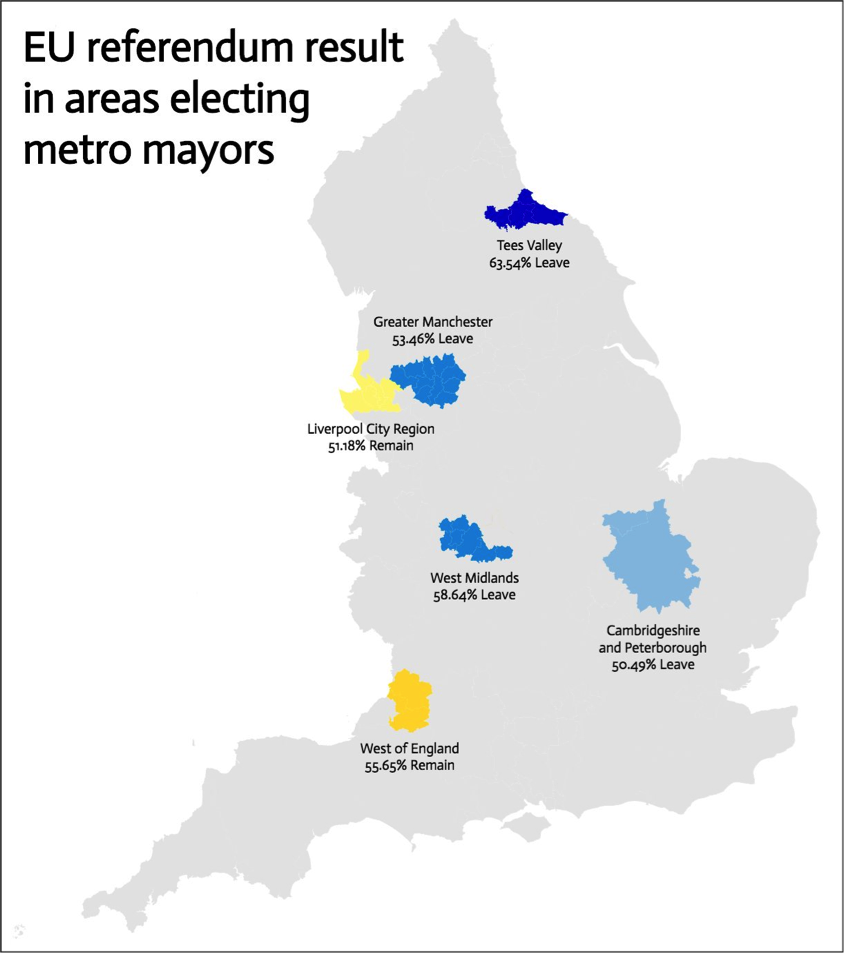Local elections in the UK rarely dominate media coverage and I doubt the 2017 local elections will get the attention they deserve. On the 4th of May, nearly 5,000 council seats are up for grabs as well as 2 local authority mayors and crucially 6 ‘metro’ mayors.
The metro mayors are designed to emulate the success of the London Mayoralty by providing a single locally elected civic leader at a regional level. In my view the most important of these by far is the West Midlands Mayor who will have responsibility for the greater Birmingham area, including large urban centres like Coventry and Wolverhampton.
In common with conservative parties across the globe the UK Conservatives have struggled to gain support in urban areas. Labour are the largest party in all of the UK’s 10 largest cities. This gives the Labour party phenomenal electoral endurance with a traditional baseline of 200 parliamentary seats.
However, a combination of Corbyn and Brexit are weakening Labour’s hold on the UK’s cities and jeopardising their electoral base. The Conservatives have been laying the ground work since 2010 through policies such as locally elected mayors, HS2 and the Northern Powerhouse to extend their reach northward and break out of their own electoral heartland of the South of England.
The litmus test of whether the Tories can succeed is the UK’s second city, Birmingham, and the mayoral candidature of Andy Street. Andy Street is the former managing director of one of the UK’s most successful co-operatives, the John Lewis Partnership. He faces Labour MEP Siôn Simon. All accounts indicate that it will be an extremely tight race with recent polling placing both candidates on 33%.

2015 general election results in the West Midlands (blue seats, Conservative; red seats, Labour)
A mere two years ago Labour dominated the West Midlands at parliamentary level with a lead of 21 seats to the Conservatives’ 7. The Conservatives owe their competitiveness to the leadership of Jeremy Corbyn. The West Midlands voted 59% to leave the European Union. Corbyn’s incoherent Brexit stance has hemorrhaged support amongst Labour’s traditional working class base to May’s Conservatives. When combined with Corbyn’s generally abysmal poll ratings this brings the West Midlands into play for the Conservatives.

EU referendum result in areas electing metro mayors
This has the potential for serious long term consequences. Labour’s traditional stronghold in Scotland spectacularly collapsed in 2015. In 2017 Labour face the possibility of losing their majority in Wales for the first time since 1922. Labour are becoming increasingly reliant on their urban strongholds in the North of England. If the Conservatives can seriously challenge in a Northern(ish) urban Labour Heartland like the West Midlands it could have profound implications for the UK political map.
Prior to 2015 he Lib Dems proved what could be achieved at parliamentary level with a solid base at local government. If the Conservatives can establish a record of success leading councils in traditional Labour heartlands it could have profound long term consequences.
